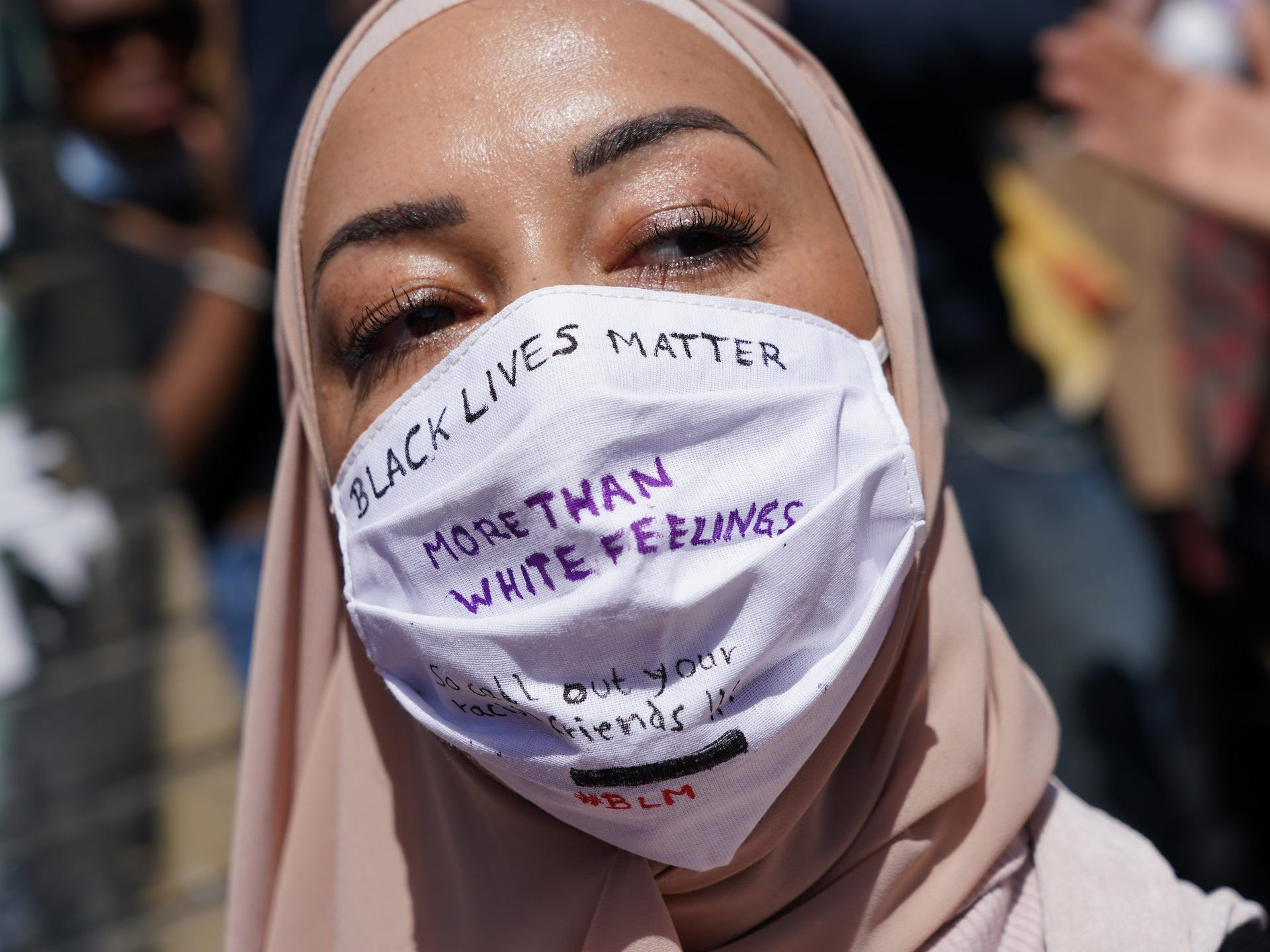How Nusaybah Bint Ka'ab Tore Down Cultural Assumptions About Gender & Faith
Faith
|
Mar 5, 2021
|
4 MIN READ

Image of a woman wearing a hijab and face veil. Image source: Pexel
Editor's note: For Women's History Month, we are sharing stories of some of our favorite Sahabiyat, female companions of the Prophet Muhammad (saw). These women are the foundations of our histories, and their lives are multitude of lessons for us all.
The first half of the year usually has my intersections tingling. Yeah, they tingle. First, I get to enhance my appreciation for all things Black during Black History Month, focusing on race, faith and gender influences on the African American tradition. As soon as the month finishes, Women’s History Month begins, and I can focus on race, gender and faith fluences on global womanhood and the awesomeness of Muslim women.
Alhamdulillah, the historical continuum of Muslim women is full of those who affected change in their societies, from Khadija bint Khuwaylid (ra) – the first person to accept Prophet Muhammad’s (saw) message, Sumayyah Bint Khayyat (ra) – a Black Muslim woman who was the first martyr for the faith, and Sister Clara Muhammad – an African American Muslim woman who established the first Islamic school system in the United States. We have plenty of exceptional Muslimahs, but when our Haute Hijab editor extraordinaire, Dilshad Ali, asked us to choose a Muslim woman we admired to highlight, one name immediately came to mind – Nusaybah Bint Ka’ab Al-Maziniyyah (ra).
I came across Nusaybah’s (ra) life story when I questioned my place as a Muslim woman in my community and broader Ummah. So much of the surrounding Muslim culture correlate piety and femininity to specific character traits, like shyness, speaking with a soft voice and showing no sign of assertiveness or determination typically reserved for men. Allah (S) forbid a woman speak out against the status quo or advocate her perspective, stripping away perceptions of piety and femininity!

Image source: Pinterest; Sean Gallup/Getty
The singular paradigm of Muslim womanhood generated a lot of conflict inside me, a woman who must navigate complex racial and gender-biased systems every day and is the product of a cultural experience that taught me to get up, roll my sleeves, fight for justice and demand others to recognize my humanity. I am a fighter, and I can not come to terms with Allah (S) giving me all of this intellect, determination and a voice that carries to sit still because that’s what a good Muslim woman should do.
Nusaybah’s (ra) story tears down cultural assumptions about faith and gender. She was a warrior in her own right and an example that you can be feminine and a fighter. An Ansaar convert and one of two women present at the Second pledge at Al-Aqabah, Nusaybah (ra) was a wife, mother, diplomat and defender of the Prophet Muhammad (saw). During the Battle of Uhud, she astonished people with her swordsmanship and protected the Messenger (saw) with her husband and two sons.
She fought so bravely and adeptly that the Prophet (saw) instructed a man to give her his shield. He (saw)mentioned, “Wherever I turned, to the left or the right, I saw her fighting for me.”
Accounts of her strength fill us with vigor and inspiration. When a Meccan injured her son, Umarah, she bandaged him, picked him up and told him to fight, then sliced the enemy who injured him. If that is not Mama Bear to the ultimate, I do not know what is. She endured many injuries at Uhud, so many that she passed out.

Image source: American Muslim Today
Her battlefield prowess continued. She fought in the Battles of Hunayn, Kheybar and Yamamah, where she lost a hand. Nusayba is an example of the fighting spirit many Muslim women have, validating the need for them and their right to utilize their strengths and skills for Allah (S) and humanity.
The layers of Nusaybah’s (ra) life included her presence at the treaties of Aqabah, Al-Hudaybiyah, Khaybar and Hunayn and the Conquest of Mecca. She transmitted several hadith and garnered the respect of Abu Bakr Al Siddique, and Omar Bin Al Khattab.
Like so many companions of the Prophet Muhammad (saw) Nusaybah Bint Ka’ab (ra) serves an example of the best of our Ummah and the complexity of Muslim womanhood that resists arbitrary parameters restricting how we interact inside and outside of Muslim culture. I connect with her story so much that I named my daughter after her.
My daughter and her sisters love hearing about her namesake’s accomplishments, reinforcing that we can all worship Allah and be women who kick some butt. Our Ummah needs us to fight the good fight more than ever.
Who are some of your favorite Sahabiyat? Who would you like us to write about? Let us know in the comments below!
Subscribe to be the first to know about new product releases, styling ideas and more.
What products are you interested in?

